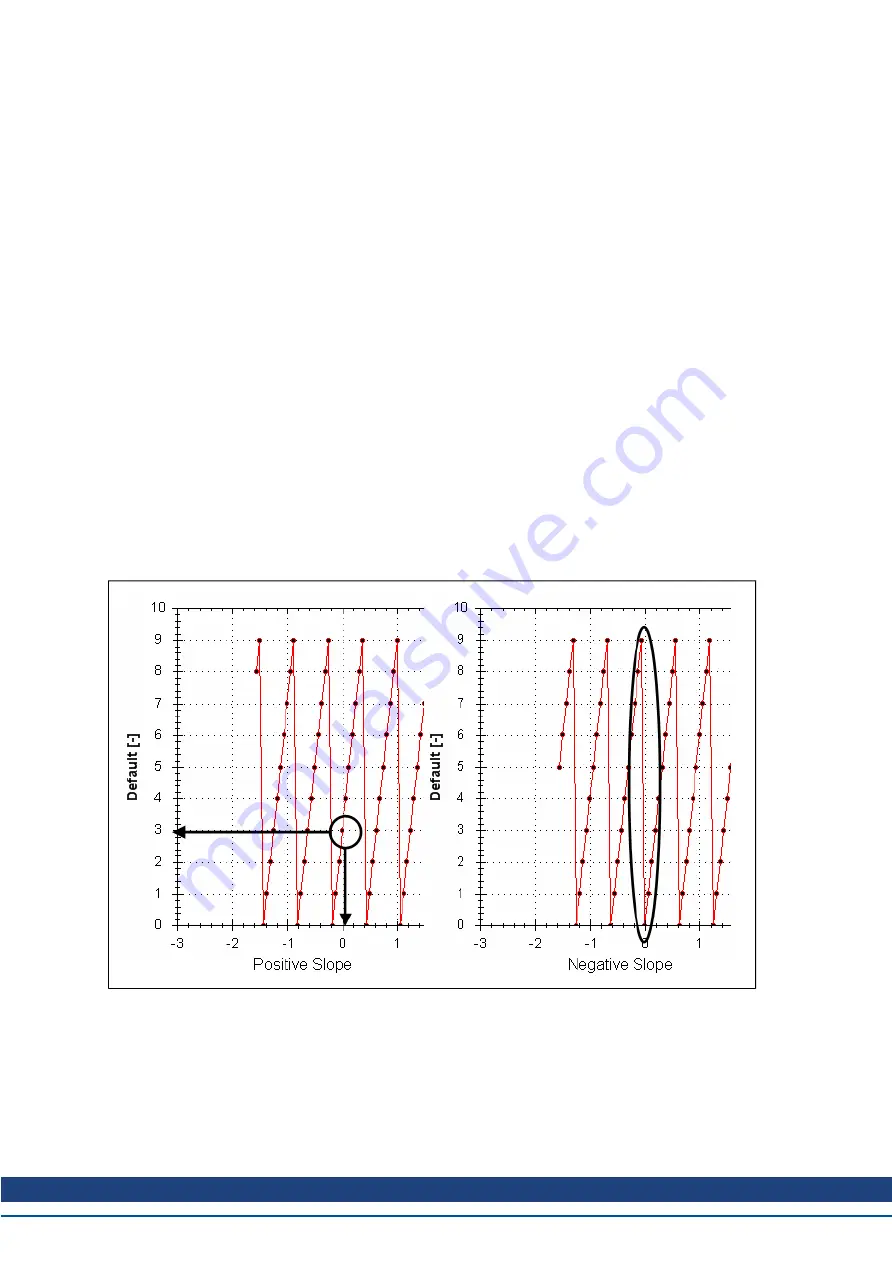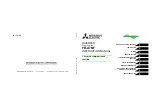
AKD PDMM User Guide | 13.2.2.6 Trigger Slope
2. You can miss triggers, whose duration is less than N samples, where N is the value of
REC.GAP. This is because the trigger is only evaluated every N samples.
A workaround for the above effects is available by setting the recorder trigger position to zero (REC.TRI-
GPOS 0). This eliminates conflicts between pretrigger and post-trigger timing and will guarantee trigger
evaluation every sample, eliminating the cases above.
13.2.2.6 Trigger Slope
Trigger Slope specifies whether you trigger on a positive or negative change in the trigger source. The
effect of the trigger slope is different for trigger type Boolean and On Next Signal modes.
Boolean Trigger Type
When using Boolean type:
l
A positive slope will trigger when the trigger source is 1
l
A negative slope will trigger when the trigger source is 0
The boolean trigger type is a state trigger. There is no need to transition from 0 to 1 to trigger with the pos-
itive slope. If the trigger source is 1 from the start, the positive slope will immediately trigger.
On Next Signal Trigger Type
The “On Next Signal” trigger type allows you to specify if the recorder should trigger when the signal
crosses the trigger level in the positive or negative direction. The signal only needs to reach the trigger
level; it does not need to pass the trigger level.
In the examples below, the trigger value is set to 3 (REC.TRIGVAL 3.000). You can see that with positive
slope, the trigger occurs exactly when the signal transitions from 2 to 3, because it reached 3. The neg-
ative slope case triggers when the signal transitions from 9 to 0, because it crossed 3 on the way.
13.3 Scope Settings
Scope settings are used to store and retrieve the scope parameters.You can save multiple settings, called
"presets", under different names. You can save, delete, import, or export the presets. The settings are
stored in EWV project file (default.wbproj) and settings are common to all the drives in EWV.
Kollmorgen™ | December 2012
109
Summary of Contents for AKD PDMM series
Page 25: ...This page intentionally left blank 25 Kollmorgen December 2012...
Page 32: ...This page intentionally left blank 32 Kollmorgen December 2012...
Page 52: ...This page intentionally left blank 52 Kollmorgen December 2012...
Page 101: ...AKD PDMM User Guide 12 3 6 2 Biquad Calculations 101 Kollmorgen December 2012...
Page 133: ...This page intentionally left blank 133 Kollmorgen December 2012...
Page 158: ...AKD PDMM User Guide 17 Connection Diagrams Kollmorgen December 2012 158...
Page 470: ...AKD PDMM User Guide 48 27 VL THRESH 1 Velocity Loop 470 Kollmorgen December 2012...
Page 511: ...This page intentionally left blank 511 Kollmorgen December 2012...
Page 513: ...This page intentionally left blank 513 Kollmorgen December 2012...
















































